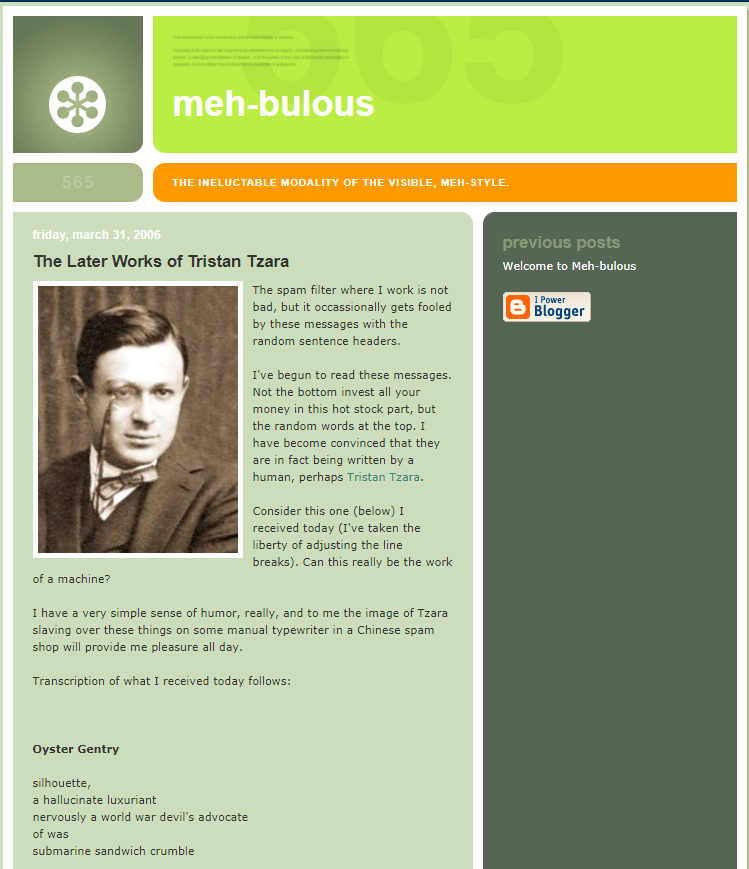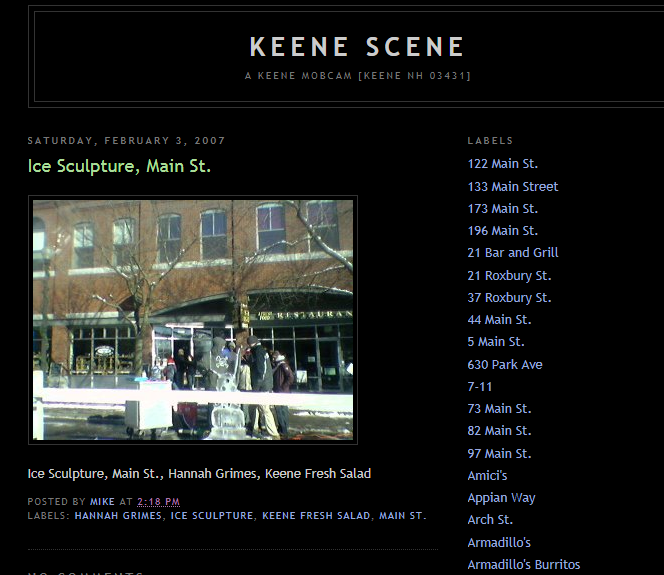Dave Winer has a great post today on the closing of blogs.harvard.edu. These are sites run by Berkman, some dating back to 2003, which are being shut down.
My galaxy brain goes towards the idea of federation, of course. The idea that everything referencing something should store a copy of what it references connected by unique global identifiers (if permissions and author preferences permit), and that we need a web that makes as many copies of things as the print world did, otherwise old copies of the Tuscaloosa News will outlast anything you are reading today on a screen. Profligate copying, as Ward Cunningham has pointed out, is biology’s survival strategy and it should be ours as well.
(I know, nature is not teleological. It’s a metaphor.)
But my smaller provocation, perfectly engineered for Friday twitter outrage at me and my sellout-ness, is this:
All my former university hosted sites are gone. We built up a WPMU instance at Keene in 2010, and the lack of broad adoption meant when I left in 2013 we shut it down. I ran some wiki on university servers here and at Keene, and those are gone too.
All my self-hosted sites are corrupted from hacks or transfer errors in imports. Go back into this blog and you’ll find sparse posting schedule for some years between 2010 and 2012 and it’s because those posts got nuked in a 2012 hack. I had to go out to the Wayback Machine and reconstruct the important ones by hand.
Transfer errors, let me tell you: Go back to 2007 and look at all the images that failed imports and moves on this blog when it was self hosted. There’s also this weird “” character that pops up in all of them like this:
Hold on, you say, these Metro signs look different! There’s no BRAND!
The entire Blue Hampshire community I co-founded, over 15,000 posts and 100,000 comments, originally self-hosted on SoapBlox and then WordPress? Gone. It’s probably OK, I said a lot of stupid stuff. But of course it was also a historically important site, one of the most successful state political blogging communities, one of the first communities to be syndicated by Newsweek, one of the first to feature news stories that cross-posted — as news stories — to Huffington Post. One of the first sites to get individual statements from all the Democratic presidential candidates in a weekly forum. Gone, gone, gone.
I know, this doesn’t seem to be provocative, but here’s the thing:
My Blogger sites from 2005 forward? They’re up and they are pristine.

I mean, I’m not sure that’s a great thing — it was where I put little experiments too little to be worth setting up another BlueHost domain. But it also did me a solid in Keene Scene, where the 12-year old images of Keene life have stayed up unmolested and without any maintenance. (I’d quite forgotten about it, really).

Same holds — as I’ve mentioned before — for projects students put up on Google Sites. The BlueHost server (and later the Rackspace account) was long ago shut down but Google Sites is still up.
I’m not making a specific case here. But I do want to point out a big reason I moved to self-hosted and institutional solutions was this idea that commercially hosted stuff was too fickle. In 2006, it seemed that every week a new site shut down. For better or worse (mostly worse) monopoly consolidation has changed that dynamic a bit. There are other good reasons for self-hosting or doing institutional hosting, but durability is more downside than upside of these options, and we might want to let our students know that if they want something to stay up, self-hosting may not be the best choice.
Leave a comment